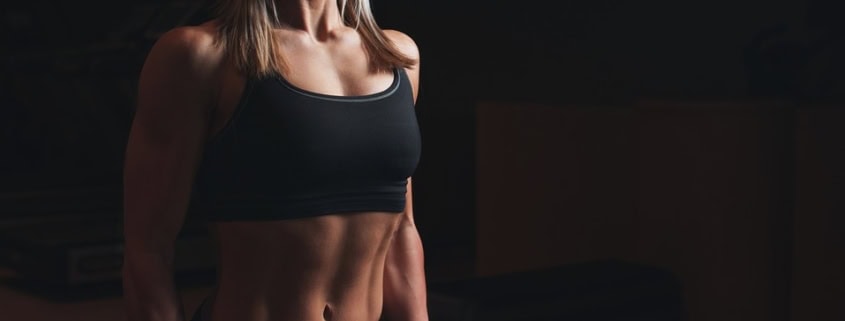Two Fitness Myths Which Must Die!
1) Muscle turns to fat once you get older.
This one really grinds my gears and a little piece of me dies whenever I am confronted by somebody asking me whether I worry that my muscle will turn to fat once I get older. Muscle turning to fat is akin to plastic turning to diamond, it just can’t happen!
What’s that I hear? “But David, I know many guys who have gained lots of body fat once they got older. They were once muscular and now they are fat. Surely it must be true”?
The most common reason why this occurs is that most muscular athletes such as rugby players, bodybuilders, powerlifters, rowers, track cyclists etc. consume large quantities of calories. In some cases this can exceed 8,000kcal per day. If you have been eating that way for many years and train 2-3 times per day and then retire, cut back the training volume and move less, guess what? Those habits you formed consisting of slamming back heaps of meat, potatoes and energy drinks continue into later life and you are subjected to fat gain, just like anybody consuming more calories than they expend.
Muscle is an extremely metabolically demanding tissue, so if you are smart about what you eat, this should actually contribute to fat loss as you age and not fat gain. One of the biggest reasons for a decline in general health and metabolic health with age is the decline in muscle. The cure? Get lifting some weights! You will live longer whilst looking sexier!
2) Women get too bulky if they lift weights.
Aaargh! This is single handedly the worst statement ever to afflict humanity (well nearly…). Many a time here at Elitas we have held our heads in despair as we listen to female clients telling us how they don’t want legs the size of tree trunks, traps so big they have no neck and biceps twice the size of their husbands’.
Now, before I explain this one there will be may of you saying…
“But my friend Helga, the shot-putting Lithuanian, now looks like a world strongest man competitor after she started going to the gym twice per week”, or “I started squatting and now I can’t fit into a size 2 dress anymore”.
*SIGH*
Before I rant on, it is fair to say that women do and will gain a little muscle mass from the correct type of training and nutritional strategies required for hypertrophy. In fact, this increase in muscle mass is incredibly important for health.
A reasonable amount of muscle mass for a woman to gain whist raining 3-4 times per week could be 4-6lbs in the first year, which sounds like a lot, but it is not when you put this into perspective. If you take 6lbs of fillet steak (basically muscle) and were to evenly divide and stretch it out over your entire body you would probably notice very little difference, particularly when you consider that 6lbs of muscle would theoretically burn an extra 300kcal per day (on top of the calories expending actually training those muscles). It is therefore reasonable to say that the average woman, who gained 6lb of muscle over the course of 6-12 months and had an average amount of body fat, would actually lose weight.
To build muscle you need to achieve some sort of mid to long-term calorie surplus. If your diet reflects that of the average middle aged Instagram yoga mum consisting of hummus, birch water and Special K, and you are dieting in a calorie deficit, you just cannot expect to see any kind of significant muscle gain. If you feel you are getting too big, you are either just eating too many calories or your perception of yourself is skewed or altered by that of another person’s comments or your own perception of how you should look (another post to come on this soon).
Go into any commercial gym and you will find a load of guys training every day, pumping weights and struggling to gain any significant muscle mass. These guys have literally 10 x as many anabolic hormones as the average woman yet they still struggle to gain muscle mass despite a tremendous amount of work and commitment to their training and nutrition. In fact if men could gain muscle mass as quickly as most women feel they could gain muscle, then all men would be walking around looking like the love child of the Incredible Hulk and Arnold Schwarzenegger!!
For those very few women who legitimately do carry significantly more muscle mass than average, they almost certainly fit one of more of the following criteria:
- Have high levels of body fat which make them appear even more muscular. This is especially true in sportswomen competing in strength and power events in which excess body mass has no detrimental effect (e.g. throwing events or weightlifting/powerlifting events with no upper bodyweight limit).
- Are taking anabolic steroids or medications which accelerate muscle mass.
- Naturally have a larger frame and were always more muscular than usual. This minority respond really well to resistance training and look fantastic as long as they keep their body fat levels in check!
It is important to remember that the top female strength and power athletes you see on the television are not a valid reflection of the effects of weight training in women. The ladies you see competing in the Olympics in the shot put are right up in the top percentile of genetic predisposition for being big and strong. Performing heavy strength training, throwing heavy objects and consuming a large number of calories is also a full time job for them. Increasing your protein intake while maintaining a healthy daily caloric intake and performing 3 well-balanced weight training sessions each week will not turn you into an Olympic shot putter!
Women who lift regularly:
- Look amazing
- Feel great
- Feel strong and independent
- Feel healthy and mobile later in life
- Handle insulin better and have better insulin sensitivity (possibly the most important factor in disease prevention of all kinds)
- Hold a sense of accomplishment. This idea that Women are helpless and need a man to do all the lifting and heavy work is utter bull crap! We have multiple female athletes and everyday women who can perform 10+ pull ups, deadlift up to 2x their bodyweight and push 150kg Prowlers at bodyweights under 60kg.


